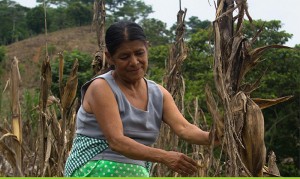G20 needs to get back to work
This year’s G20 Summit in Mexico just wrapped up with hugely disappointing results on the issues that Oxfam cares about, including food security and price volatility, innovative financing, and reducing inequality. G20 leaders were fixated on the ongoing European financial crisis and managed to barely skim the surface on critical environment and development issues. It’s […]
This year’s G20 Summit in Mexico just wrapped up with hugely disappointing results on the issues that Oxfam cares about, including food security and price volatility, innovative financing, and reducing inequality. G20 leaders were fixated on the ongoing European financial crisis and managed to barely skim the surface on critical environment and development issues. It’s a shame, given that there was a real opportunity to link these issues and associated outcomes to the ongoing Rio+20 conference on sustainable development in Brazil.
We originally held out some hope that the Mexican presidency would make progress on identifying innovative sources of climate finance as they established a study group on the issue chaired by France. But all that made it into the final communiqué was the reassertion of a commitment to the UNFCCC outcomes in Cancun and Durban, neither of which identified new sources of finance to meet the goal of $100 billion per year to be delivered to developing countries.

One promising source of climate finance is the international shipping sector. Last month, Oxfam participated in an event at the Brookings Institution that featured new analysis, soon to be released by Brookings, finding that the economic impacts of a market-based mechanism (levy or emissions trading scheme) in the sector will likely have minimal impacts on price and demand for US imports and exports.
The G20 should take note of these findings and identify the shipping sector as a key source of innovative finance. The US economic analysis mirrors similar analyses conducted at the international level on the price impacts of a global shipping mechanism.
Funding to support vulnerable communities in developing countries as they struggle to prepare for and respond to a changing climate has to come from somewhere. The shipping sector is a source that makes sense. Its emissions are some of the fastest growing on the planet and the sector has been let off the hook for too long in delivering meaningful greenhouse gas emissions reductions.
The study group will continue its work until November 2012 when Mexico turns over the G20 Presidency to Russia. There is potential for the group to make progress on identifying sources of innovative finance as France and South Africa, co-chairs of the group, have expressed support for sources like shipping in the past.
Let’s hope that countries step up the pressure on the G20 to deliver something meaningful on innovative climate finance in the coming months.